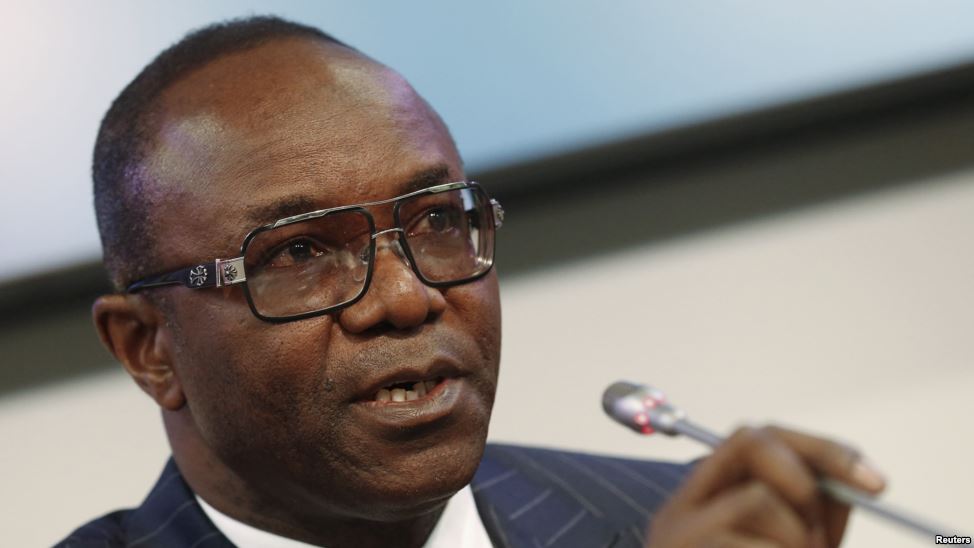- Nigeria Lost Out on $10bn Oil Asset Divestment
Nigeria failed to benefit from the over $10bn raked in by international oil companies from recent divestment of assets in the country, industry operators said.
The divestment exercise, which started in 2010, saw a number of indigenous oil companies falling over themselves to snap up assets that had been described as over-priced.
In the past few years, mostly before the steep fall in global oil prices, the IOCs such as Shell, Total, Chevron, and Eni successfully disposed of stakes in some onshore and shallow water assets in the country.
But some industry operators said the country did not benefit from the divestment because a proper lease administration and an attractive investment environment were not in place.
The operators stated this while discussing how to grow Nigerian independents to world-class exploration and production companies at the Aspen Energy Roundtable conference held in Lagos on Tuesday.
The Chief Executive Officer, Seplat Petroleum Development Company Plc, Mr. Austin Avuru, said about $10.4bn was spent by indigenous oil firms to acquire divested assets in the last seven years.
He said, “It is not small money; 70 per cent of all of this came out of Nigerian banks. I can tell you that 60 per cent of this money would have gone to the DPR (Department of Petroleum Resources) if the DPR had handled the lease administration properly.
“But this is all the money that we as indigenous companies, using Nigerian banks, paid to the IOCs. I hope that will be a lesson for the next lease administration, bid rounds and renewals.”
Avuru stressed the need for the country to administer its resources in such a way that “maximum value is captured without expropriation.”
“We are the victims knocking our heads together and paying three times more for these leases because we have no option. There are no leases available. So, we knock our heads together and then the IOCs are smiling. We could have paid one third of what we paid to the government and everybody is happy,” he said.
The Managing Director, ND Western, Mr. Layi Fatona, said the divestment had grown a portfolio of new entities in the nation’s oil industry such as Seplat and ND Western.
“But the most important thing is that when you look at the spending, all of the money came mostly from the Nigerian banking system. And I ask a pertinent question: Shall we call this capital flight? All that money that was taken from the Nigerian banking system by essentially indigenous E&P companies paid to the IOCs left the shores of this country.
“How much of this money ended up as a backward reinvestment in the Nigerian petroleum industry?”
Fatona said some of the assets were over-priced but the sellers could not be blamed if the buyer was naive enough or consciously paid what was demanded.
He said if the government had created an environment where the IOCs could put back the money they got from the divestment, the oil majors would have done so.
“So it is not about capital flight; it is about the fact that we have failed holistically to create the environment where the seller of an asset who makes profit believes sufficiently in this society and put all the money back into the system,” he said.
Fatona said the divestment had provided an opportunity for indigenous companies, as assets acquirers, to learn to work with the dominant partner, the Nigerian National Petroleum Corporation.
He described the exercise as a catalyst for the Nigerian petroleum industry to build its own capacity.
The Chairman, Aspen Energy Nigeria Limited, Mr. Bayo Opadere, said the inherent potential of the Nigerian energy sector would not be realised if the players operated in silos and failed to engage in deliberate and structured conversations.
“It is against this background that Aspen Energy has undertaken the task of facilitating the roundtable conference. By this, we hope to create a platform for focused discussion that will articulate strategy and policy proposals on an ongoing basis.”

 Education4 weeks ago
Education4 weeks ago
 News3 weeks ago
News3 weeks ago
 Business3 weeks ago
Business3 weeks ago
 Technology3 weeks ago
Technology3 weeks ago
 Investment4 weeks ago
Investment4 weeks ago
 Investment3 weeks ago
Investment3 weeks ago
 Telecommunications4 weeks ago
Telecommunications4 weeks ago
 Banking Sector3 weeks ago
Banking Sector3 weeks ago






























